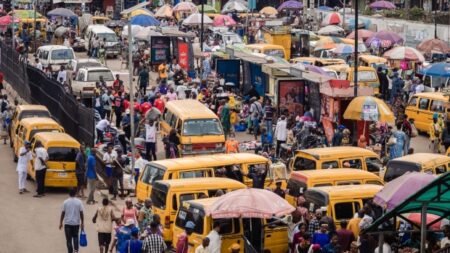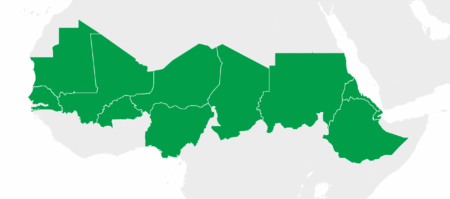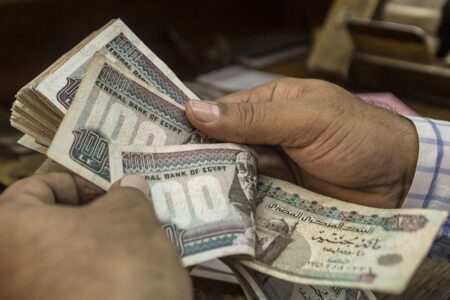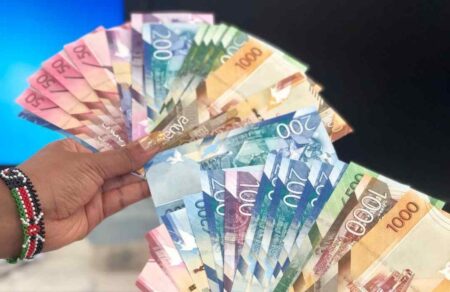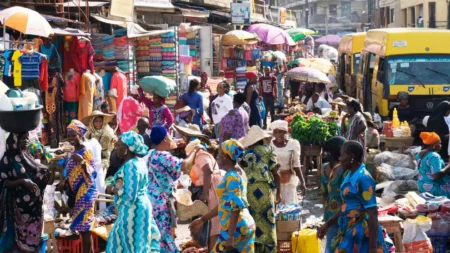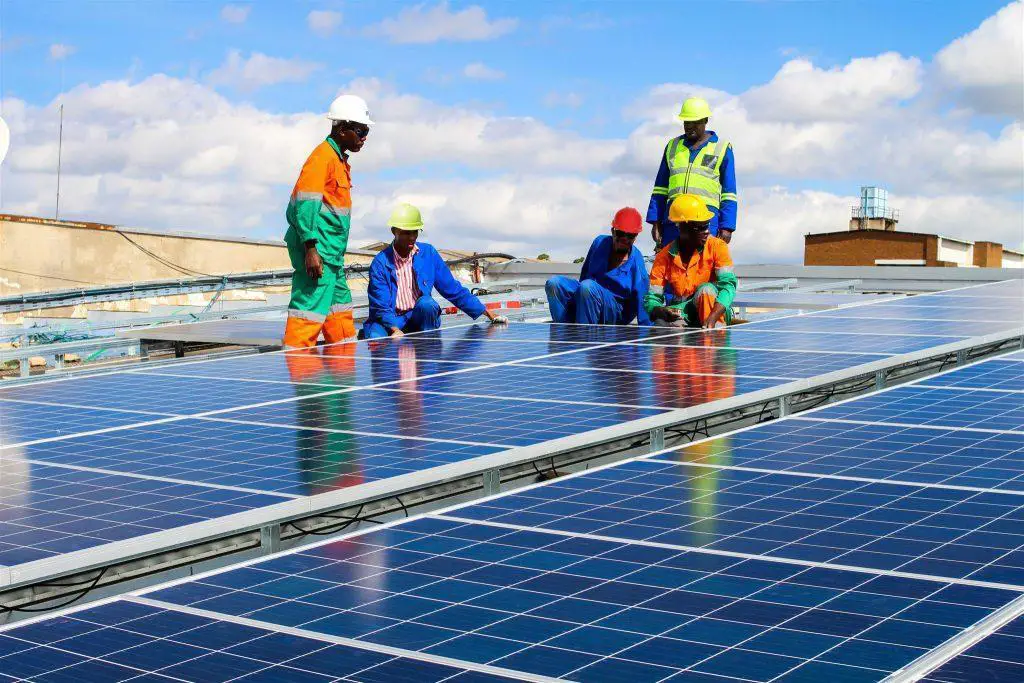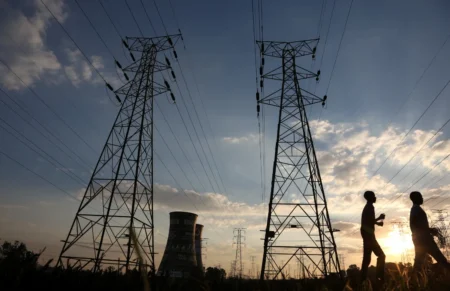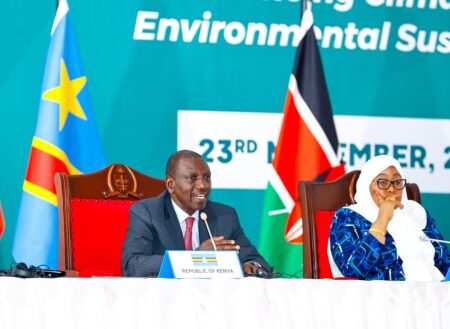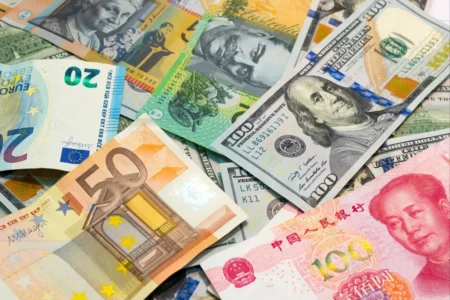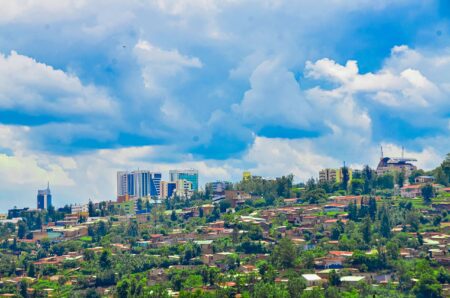- Abu Dhabi radiates optimism as over 300 startups join AIM Congress 2024
- TLcom Capital Raises $154 million in Funding to Boost Its African Growth
- Africa’s $824Bn debt, resource-backed opaque loans slowing growth — AfDB
- LB Investment brings $1.2 trillion portfolio display to AIM Congress spotlight
- AmCham Summit kicks off, setting course for robust future of US-East Africa trade ties
- Why the UN is raising the red flag on the UK-Rwanda asylum treaty
- Portugal’s Galp Energia projects 10 billion barrels in Namibia’s new oil find
- Wärtsilä Energy offers tips on how Africa can navigate energy transition and grid reliability
Browsing: World Bank
- Nigeria’s cost of living crisis has been the worst in decades, exacerbated by worsening food insecurity and record inflation.
- The lack of enough resources has led to insecurity in Nigeria as people fight for scarce resources and food.
- In response to Nigeria’s cost of living crisis, Tinubu announced a state of emergency in July and intends to begin grain distribution in the coming weeks.
Tinubu’s Reforms worsen Nigeria’s cost of living crisis
Nigeria, Africa’s largest economy, is grappling with the worst cost of living crisis in decades and a worsening food security situation. A significant portion of the population is experiencing extreme food insecurity. After assuming power in May 2023, Bola Tinubu’s administration adopted bold but unpopular reforms that further strained the already-battered economy.
Nigeria imports food and fuel and was buffeted by rising commodity prices due to a glim global economic situation in the last two years. President Tinubu …
- Agriculture is one of the leading causes of climate change.
- Without action, emissions from food systems will rise even further, with increasing food production.
- Climate-smart agriculture offers a holistic approach to end food security.
It may surprise many that agriculture and its activities are, in fact, one of the leading causes of climate change. Agriculture is reported to be responsible for some of the highest emissions of greenhouse gases, making the sector one of the main contributors to global warming.
It strikes the environment with a double-edged sword, emitting greenhouse gases on one hand and destroying forests and marine ecosystems on the other.
According to the World Bank, agriculture is the primary cause of deforestation, threatening pristine ecosystems such as the Amazon and the Congo Basin. With the global population exploding, there is an inevitable need to increase food production, which can only be achieved by expanding agricultural activities.
This …
- Egypt’s economy has recently been on life support as the national debt continued to mount.
- The investments from Saudi Arabia and further funds anticipated from the World Bank and IMF will give Egypt enough cash to meet its debt obligations and maintain stability in its recently floated currency.
- The significant official and bilateral support announced and marked policy steps that Egypt has taken will, if maintained, support macroeconomic balancing.
Egypt’s economy on life support
Egypt’s economy has recently been on life support as the national debt continued to mount. The Egyptian currency has weakened against the US dollar, with rising inflation rates close to 30 per cent, occasioning a capital flight. Moreover, the overlapping global shocks and the domestic supply of bottlenecks have adversely impacted the country’s economic activity.
Egypt has also suffered from rising global interest rates and soaring commodity prices in international markets. These overlapping factors widen the …
- Official data shows that diaspora remittances to Kenya increased to $412.4 million in January 2024, compared to $372.6 million in December 2023.
- This represents an 18% jump compared to similar month in 2022 as well as 10.7% month-on-month increase in inflows.
- The cumulative inflows for the 12 months to January 2024 totalled $4.3 billion compared to $4 billion in the same period in 2023, an increase of 5.3 per cent.
Kenyans in the diaspora sent home more money in January compared to December, as the strong start of the year signals easing inflationary pressures, mainly in key sourcejock strap brock bowers jersey jordan max aura 4 nike air jordan 1 elevate low oregon football jerseys black friday wig sale best human hair wigs for black females latex hood custom stitched nfl jersey sit top kayak nike air max 90 futura jock strap jock strap air max 270 women alpinestars …
- Like many other countries, the IMF has noted that Nigeria’s economy faces a complex external environment and wide-ranging domestic challenges.
- External financing (market and official) is scarce, and global food prices have surged, reflecting the repercussions of conflict and geo-economic fragmentation.
- Per-capita growth in Nigeria has stalled, and poverty and food insecurity are high, exacerbating the cost-of-living crisis, according to the global lender.
Nigeria’s economy is not yet out of the woods, the International Monetary Fund (IMF) has indicated, with a potential economic crisis despite government interventions to improve the economy.
This is even as the country’s real GDP is projected to grow by three per cent this year compared to last year’s projection of 2.9 per cent.
Like many other countries, the IMF has noted that Nigeria faces a complex external environment and wide-ranging domestic challenges.
External financing (market and official) is scarce, and global food prices have surged, …
- Solar energy, alongside wind power, has become the cheapest way to meet the growing demand for electricity, according to the World Bank.
- World Bank’s Demetrios Papathanasiou says many developing countries have some of the world’s best solar and wind resources.
- He expresses his optimism about the ability of global countries to tap into advances in solar energy and make dramatic gains.
Solar energy is expected to surpass coal as the world’s most available energy source by 2027. The African countries with the most immense global potential are critical drivers of this projection.
The World Bank, in its latest energy report update, says that of the nearly 675 million people who still live without electricity worldwide, more than 80 per cent, or 567 million people, live in sub-Saharan Africa.
It says that 2030 solar mini-grids could bring high-quality, uninterrupted power to 380 million people.
“This is if governments and …
- Africa’s low electricity access stresses the need to double more than the efforts to meet SGD 7.1 by 2030.
- In Kenya, data by the lender shows 71 per cent of the population had access to electricity in 2021, compared to about 14 per cent in 2000.
- World Bank further identifies a stark divide in global access to electricity between urban and rural areas.
Sub-Saharan African states have made tremendous progress in electricity access in the past two decades, with the access rate rising from 25 per cent in 2000 to 48 per cent in 2020.
However, according to the World Bank, countries must double their electrification efforts to bring electricity to all by 2030, meeting Sustainable Development Goal Seven.
“Global access to electricity is increasing at a slow pace, with the progress towards achieving universal access to electricity being slow over the last 20 years,” …
- There is a Climate Funding gap of 40 billion dollars in blue carbon, yet no Kenyan firms are undertaking it.
- According to the World Bank, Kenya remains vulnerable to frequent climatic shocks that pose significant economic risks.
- The East African country has been gravely affected by changing weather patterns and a fall in disposable income available for necessities.
Despite their considerable potential, Kenya is foregoing billions of dollars in untapped climate financing opportunities. While many startups are entering this sector, industry experts argue that the current figure remains insufficient to combat climate change adequately.
Pangea Accelerator, an investment platform that provides funding for startups and small and medium enterprises (SMEs), says that the region needs to grow the number of startups, fully focusing on the environment. The Founder of Pangea, Jonas Tesfu, says that as a country, Kenya needs to have a lot of innovative businesses join climate change initiatives …
- Kenyans in the diaspora sent home $4.19 billion in 2023 as remittance inflows to the East African country hit an all-time high.
- The high numbers signal that Kenyans living and working in the diaspora defied the inflationary pressures they still experienced to send more money back home.
- Since the height of the COVID-19 pandemic, many Kenyans in the diaspora have had to cut spending to navigate inflationary pressures and afford to send money back home.
Kenyans in the diaspora sent home $4.19 billion in 2023 as remittance inflows to the East African country hit an all-time high, boosting foreign exchange reserves and support for families in the wake of tough economic times.
According to the Central Bank of Kenya (CBK), the figures are up by four per cent compared to the $4.02 billion sent in 2022.
“The inflows were strong in December 2023 at $372.6 million compared to $355.0 million …
Africa will be the second fastest-growing regional economy in 2024. Over 10 African countries will experience substantial GDP growth. In October 2024, the International Monetary Fund emphasized Africa’s pivotal role in global economic development and resilience.
Africa could face economic headwinds this year. However, some of the continent’s brightest spots are lighting up the economic prospects. According to the International Monetary Fund, six of the top 10 performing nations globally are projected to come from Africa in 2024.…





